Related Research Articles
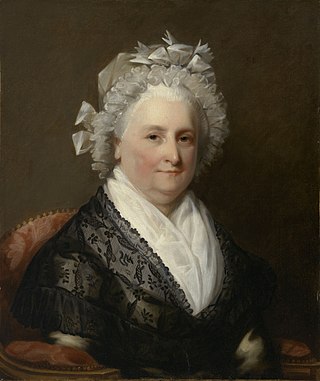
Martha Dandridge Custis Washington was the wife of George Washington, the first president of the United States. Although the title was not coined until after her death, she served as the inaugural first lady of the United States, defining the role of the president's wife and setting many precedents that future first ladies would observe. During her tenure, she was referred to as "Lady Washington". Washington is consistently ranked in the upper half of first ladies by historians.

Cornell College is a private liberal arts college in Mount Vernon, Iowa. Originally the Iowa Conference Seminary, the school was founded in 1853 by George Bryant Bowman. Four years later, in 1857, the name was changed to Cornell College, in honor of iron tycoon William Wesley Cornell.

Mary Lucinda Bonney born in Hamilton, New York, was a 19th-century American educator and advocate for Native American rights. She is considered to be the most important woman in the Native American movement to protect their tribal lands. She was also involved in the early movement to provide for girls' education. With fellow teacher Harriette A. Dillaye, in 1850 she founded a female seminary in Philadelphia. It became known as the Ogontz School for Young Ladies after it moved to a suburban estate of that name. After a second move, the last campus was developed after 1950 as Penn State Abington.

Gertrude Mary Cox was an American statistician and founder of the department of Experimental Statistics at North Carolina State University. She was later appointed director of both the Institute of Statistics of the Consolidated University of North Carolina and the Statistics Research Division of North Carolina State University. Her most important and influential research dealt with experimental design; In 1950 she published the book Experimental Designs, on the subject with W. G. Cochran, which became the major reference work on the design of experiments for statisticians for years afterwards. In 1949 Cox became the first woman elected into the International Statistical Institute and in 1956 was President of the American Statistical Association.

Mary Emma Woolley was an American educator, peace activist and women's suffrage supporter. She was the first female student to attend Brown University and served as the 10th President of Mount Holyoke College from 1900 to 1937.

Ada Lydia Howard was the first president of Wellesley College.
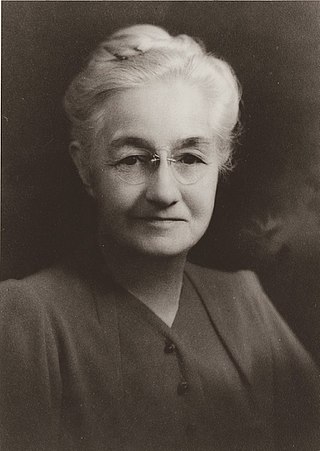
Mignon Talbot was an American paleontologist. Talbot recovered and named the only known fossils of the dinosaur Podokesaurus holyokensis, which were found near Mount Holyoke College in 1910, and published a scientific description of the specimen in 1911. In 1909 she became the first woman elected to be a member of the Paleontological Society. In the state of New York, she contributed to the Helderbergian crinoids and studied the faunas of Stafford limestone.
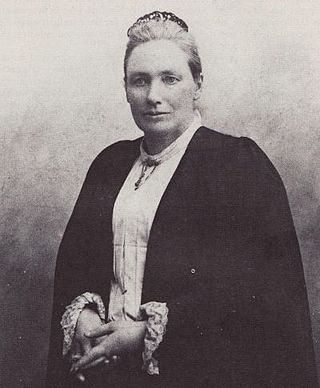
Augusta Jane Chapin was an American Universalist minister, educator and activist for women's rights. She was born in Lakeville, New York, the eldest of eleven children, to Almon Morris Chapin and Jane Pease. She was one of only a few women's speakers at the Parliament of the World's Religions that took place at the Columbian Exposition in Chicago in 1893. She had a long preaching and teaching career around the Midwest, Pennsylvania, New York, Oregon, and California.
In the early colonial history of the United States, higher education was designed for men only. Since the 1800s, women's positions and opportunities in the educational sphere have increased. Since the late 1970s and early 1980s, women have surpassed men in number of bachelor's degrees and master's degrees conferred annually in the United States and women have continuously been the growing majority ever since, with men comprising a continuously lower minority in earning either degree. The same asymmetry has occurred with Doctorate degrees since 2005 with women being the continuously growing majority and men a continuously lower minority.

Phebe W. Sudlow was a pioneer for women in the education field and was the first female superintendent of a public school system in the United States. Sudlow also became the first female professor at the University of Iowa in 1878, despite having no formal college degree.
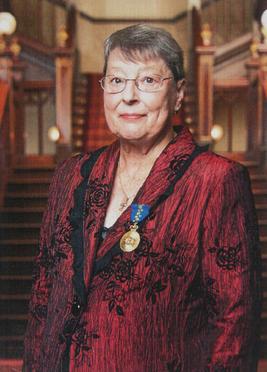
Margaret Rodgers AM was a prominent deaconess and lay-person in the Anglican Diocese of Sydney. Rodgers was Principal of Deaconess House, (1976–85), Research Officer for the Anglican General Synod (1985–93), chief executive officer of the Anglican Media Council (1994–2003), President of the New South Wales Council of Churches and Lay Canon of St Andrew's Cathedral, Sydney.
Frances Gertrude Wick was an American physicist known for her studies on luminescence.
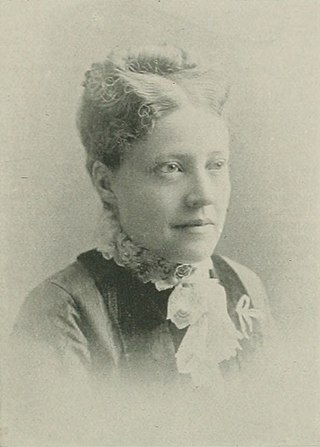
Emma A. Cranmer was an American temperance reformer, woman suffragist, and author. A talented suffrage speaker and prohibition representative, she served as president of the South Dakota Woman's Christian Temperance Union (WCTU) and the South Dakota Equal Suffrage Association. Some of her epigrams were published by the press. Cranmer died in 1937.

Mary Roberts Coolidge, also known as Mary Roberts Smith, was an American sociologist and author. She was an instructor at Wellesley College before joining the faculty of Stanford University, where she became the first full-time American professor of sociology. She later founded the sociology department of Mills College.
Victoria Schuck (1909–1999) was an American political scientist who was the president of Mount Vernon College from 1977 to 1983. As an expert on the political participation of women and women as political candidates, she contributed to the development of the study of women and politics as a subfield of political science. She also specialized in the state politics of New England, and the politics of South Vietnam. As one of the first 80 women to earn a PhD in political science, Schuck published extensively on the status of women in the profession. In total she published more than 80 articles or monographs, and co-edited several academic books. Schuck spent most of her career at Mount Holyoke College, where she was a Professor of Political Science from 1940 until 1977, and prior to that she was a professor at Florida State University.

Agnes Mathilda Samuelson was an American educator and a state superintendent in public schools. She worked to provide equal education for all students in Iowa. She was posthumously inducted into the Iowa Women's Hall of Fame in 1976 and a Des Moines elementary school was named after her.

Emilie Watts McVea was an American college administrator, dean of women at the University of Cincinnati from 1909 to 1916, and president of Sweet Briar College from 1916 to 1925.

Flora Bridges was an American college professor. She taught Greek and English at Mount Holyoke College, and was Dean of Women at Yankton College and Olivet College.

Helen McGaffey Searles was an American professor, classicist, and women's suffragist. She received her doctorate from the University of Chicago in 1898, and taught Latin at Mount Holyoke College from 1899 until her retirement in 1922.

The Poet Laureate of Iowa is the poet laureate for the U.S. state of Iowa. The position was created July 1, 1999 by Subchapter 303.89 of the Iowa Code with a two-year renewable term.
References
- 1 2 3 4 Howe, Julia Ward; Graves, Mary Hannah (1904). Sketches of Representative Women of New England. New England Historical Publishing Company. p. 175-176. Retrieved June 13, 2024.
- 1 2 3 Rexroat, Dee Ann (February 17, 2021). "Pioneering women: The top moments in women's history at Cornell College". Cornell College News Center. Retrieved June 13, 2024.
- 1 2 3 Freeman, Katie (February 23, 1995). "A 'Source of Inspiration' for Women's Rights". The Gazette. Retrieved June 13, 2024.
- 1 2 Wick, A. Wick; Brewer, Barthinius L. (2020). History of Linn County Iowa. BoD – Books on Demand. p. 376. ISBN 978-3-7523-3603-0 . Retrieved June 13, 2024.
- 1 2 3 "Reminiscences: King, William Fletcher, 1830-". Internet Archive. 1915. Retrieved June 13, 2024.
- ↑ Cornell College (Mount Vernon, Iowa) (1905). A Record of the Celebration of the Fiftieth Anniversary of the Founding of the College: Held in Connection with the Annual Commencement, June Tenth to Sixteenth, 1904. Cornell College. p. 227. Retrieved June 13, 2024.
- ↑ "A record of the celebration of the fiftieth anniversary of the founding of the college held in connection with the annual commencement, June tenth to sixteenth, 1904 : Cornell College (Mount Vernon, Iowa)". Internet Archive. 1904. Retrieved June 13, 2024.